'Capitulation': Israeli officials and media concede Gaza defeat as truce unfolds
By Ivan Kesic
As a ceasefire comes into effect in the besieged Gaza Strip after over 15 months of genocidal war, the reactions from Israeli regime officials and media are a mix of outrage and disillusionment.
After 467 days of genocidal onslaught, which killed more than 46,600 Palestinians, most of them children and women, the Israeli occupation failed to achieve its main military objective - elimination of the Gaza-based Hamas resistance movement.
The movement and its military wing, Al-Qassam Brigades, continue to inflict heavy blows on the Zionist entity in and outside Gaza, having regrouped and reorganized under the new leadership following the assassination of Yahya Sinwar late last year.
Ceasefire talks had been underway in Doha between Hamas and the Israeli regime, mediated by the Qatari government, for several weeks. Finally, the two sides managed to reach a consensus.
The details of the truce deal suggest that it is an emphatic victory for the resistance front and a disgraceful defeat for the occupation and its Western backers, which has been acknowledged even by the regime officials.
While much of the world has welcomed the much-anticipated agreement as a nascent step toward ending 15 months of relentless Israeli assaults on Palestinian civilians and infrastructure, hardcore Zionists are fuming.
They argue that the ceasefire terms overly favor Hamas and threaten to reverse the Israeli regime's so-called "achievements," which will be required to completely pull out its troops from the besieged territory.
According to experts, it exposes both the collapse of Israeli war strategy and the undying resilience of the resistance front, which, contrary to Tel Aviv's assertions, remains vigorous, dynamic, and effective.
'Gaza has won': Social media users react to ceasefire with mix of relief, joyhttps://t.co/YhyuQJ23f4
— Press TV 🔻 (@PressTV) January 15, 2025
In the last week alone, Israeli media reported two fatal "security incidents," euphemisms for tactical military defeats suffered at the hands of Hamas resistance fighters in Gaza.
Both Israeli and American media outlets have reported about the spirited resurgence of Hamas in Gaza in recent months, which has been evident from growing number of sophisticated operations against regime forces by Al-Qassam Brigades.
On Monday, the elite Nahal Brigade of the regime lost five soldiers, with eight others severely wounded in operations near Rafah, Jabalia, and Beit Hanoun in Gaza. Two days before that, four soldiers were killed in the same area in resistance operations.
Despite Israeli claims that these zones had been “cleared,” Hamas has successfully rebuilt its infrastructure and redeployed its forces, inflicting regular and severe losses on the occupiers.
This assessment aligns with recent remarks by US Secretary of State Antony Blinken, who acknowledged that Hamas has regrouped, reflecting Washington's skepticism about the long-term viability of the Israeli regime's campaign to eliminate the resistance group.
Israel’s policy of mass destruction and targeting civilians aimed to crush Palestinian morale and undermine the resistance, but the results have proven the opposite, according to observers who have hailed the ceasefire agreement as the defeat for occupation.
The mood in Tel Aviv is gloomy, which is reflected by statements issued by regime officials as well as policy pundits. Israeli minister Itamar Ben-Gvir, a vocal critic of the truce deal, warned that he may quit Israeli Prime Minister Benjamin Netanyahu’s cabinet if the agreement proceeds.
Calling the proposed deal “terrible” and a “capitulation,” Ben-Gvir lamented provisions such as the release of hundreds of Hamas prisoners, the return of Gazans to northern Gaza, and the withdrawal of Israeli occupation forces from the Netzarim axis—which he said in a video post on X, formerly Twitter, undermine Israel’s costly gains.
Ben-Gvir further decried the deal for not ensuring the release of all Israeli captives, saying it dooms those who have been excluded from the swap list to "death," advocating for war crimes, including the total cessation of humanitarian aid to Gaza, cutting off food, water, electricity, and fuel, while escalating military operations to annihilate the Hamas movement entirely.
"People cannot really stop celebrating."
— Press TV 🔻 (@PressTV) January 15, 2025
From Deir al-Balah, Gaza, Press TV’s correspondent @AbubakerAbedW reports from the joyous atmosphere in Gaza as reports indicate a ceasefire deal will be announced soon. pic.twitter.com/QNPXS7cIk2
Similarly, other war cabinet minister Bezalel Smotrich denounced the proposed ceasefire as a "disaster" for the Zionist entity. In a post on the X platform, Smotrich vowed to oppose any agreement perceived as a “surrender,” which he claimed compromises the war’s "hard-won advances," in a veiled reference to the daily massacres of Palestinians.
Echoing Ben-Gvir, Smotrich called for an all-out military offensive to occupy and "cleanse" Gaza, withholding all humanitarian aid and unleashing unprecedented destruction until Hamas capitulates.
Discontent extends to media commentators like Erel Segal of Israeli Channel 14, who derided the proposed ceasefire deal as a failure to achieve Israeli military objectives.
“We believed controlling northern Gaza would enable us to regulate humanitarian aid and pressure Hamas,” Segal lamented in an article. “But if a million Gazans return, the Israeli army will lose operational control there.”
Segal suggested the military should retain key areas like the Philadelphia corridor, warning that relinquishing such control jeopardizes Israel’s strategic position.
Journalist Yoav Limor, writing in "Israel Hayom," echoed these sentiments, criticizing what he called concessions provided by the Israeli side, including the return of Palestinians and withdrawals from key axes.
He admitted that such compromises are now inevitable and regretted the delay in reaching a ceasefire agreement, which cost numerous Israeli military many lives.
Military analyst Yossi Yehoshua, in "Yedioth Ahronoth," noted that Israeli forces failed to dismantle Hamas’s military wing, Al-Qassam Brigades, after 15 months of fighting.
Press TV's @NahidPoureisa says that Operation al-Aqsa Flood shattered Israel’s attempt to project an invincible image to the world.
— Press TV 🔻 (@PressTV) January 15, 2025
Follow us on Telegram: https://t.co/B3zXG74hnU pic.twitter.com/3f2hyfFIEn
“The emerging ceasefire and prisoner release deal is bad for Tel Aviv, but it has no choice but to accept it," he noted in grim tone.
Writing in "Yedioth Ahronoth," Israeli analyst Yoav Zitun said the occupation army has been fighting in Gaza "without a real, strategic, and long-term goal," which provided the Israeli settlers with a hope "while the people are paying the price with an increasing number of casualties, with military cemeteries expanding almost daily."
"Due to the cowardice of ministers in making a decisive political decision, and with the growing indifference of the public towards the increasing number of fallen soldiers, and amid a crisis of exhausted military manpower shortages, the army is forced to fight slowly and with fewer numbers," he stated, alluding to the fact that the resistance has an upper hand on the ground.
Channel 12 correspondent, Almog Boker, cited testimonies from Israeli regime soldiers in Beit Hanoun, who said they were fighting "under the watchful eyes of cameras" with resistance fighters "rigging every alley with explosives, activating them from tunnels."
"Their underground system is fully operational, eliminating the need for face-to-face combat," he quoted one of them as saying. "Every alley and intersection is equipped with advanced cameras, including 360-degree thermal cameras."
Another regime soldier said the Palestinian resistance fighters "operate smartly, choosing when and what targets to detonate explosives for or not."
"They monitor movements underground through cameras. If it’s a drone, they do nothing, but if it’s a military force, they detonate the explosives. They detonate the explosives, and when evacuations are announced, they come out and fire at the rescue forces," he said.
Israeli military has suffered massive losses in Gaza but the real numbers have been censored by the regime to avoid embarrassment or further demoralization.
A correspondent of the Israeli army radio earlier this week admitted that at least 840 soldiers from the occupation army have been killed since the beginning of the war.
Of these, 405 soldiers were killed during the ground maneuver in Gaza while 55 soldiers were killed during the current military operation in northern Gaza and 15 soldiers were killed in one week in Beit Hanoun.
The real numbers are much higher though, according to independent observers.
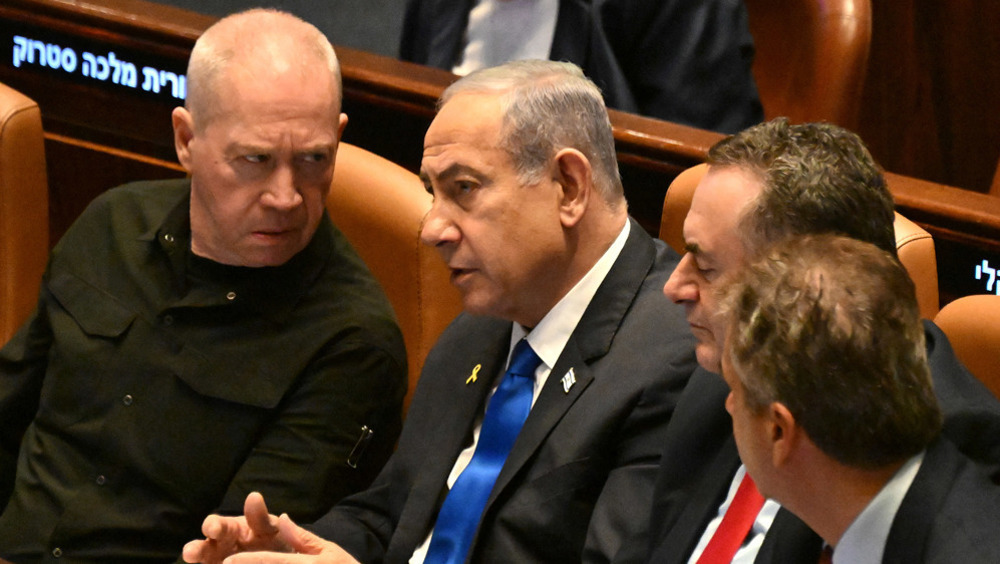
Hind Rajab Foundation to file legal action ahead of Netanyahu’s planned trip to Hungary
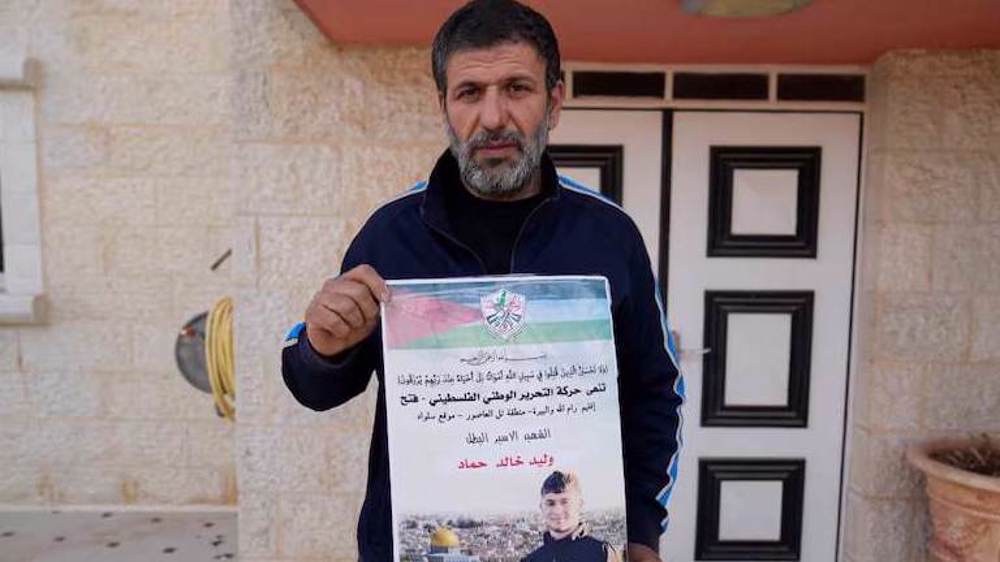
Palestinian teenager dies in Israel's jail after being held 6 months without charge
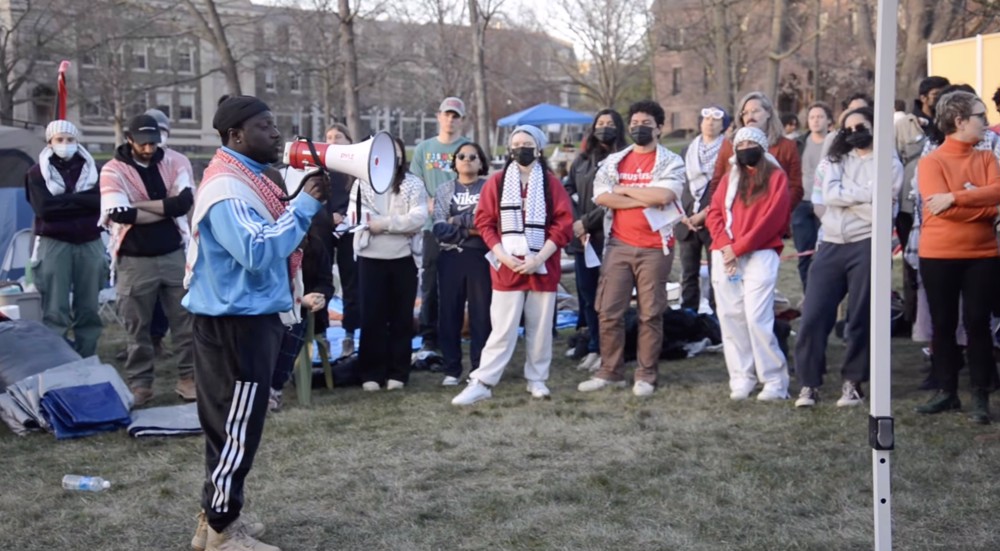
Pro-Palestinian student leaves US amid deportation threats
Report: Saudi, UAE, Qatar, Kuwait ban US warplanes for strikes
VIDEO | The day Iran said: Yes
More journalists killed in Gaza than in both World Wars combined: Report
US lawmakers move to block arms sales to Israel amid Gaza war
Turkey readies plans to take over Syria’s T4 airbase: Report
VIDEO | Press TV's news headlines
Iran condemns Israel’s continued aggression against Lebanon
VIDEO | Iran Islamic Republic day






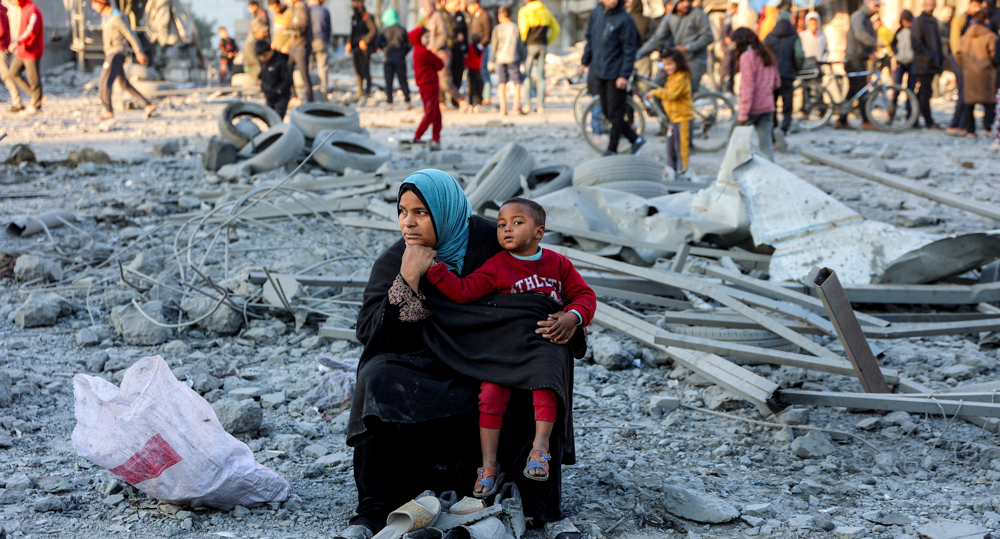
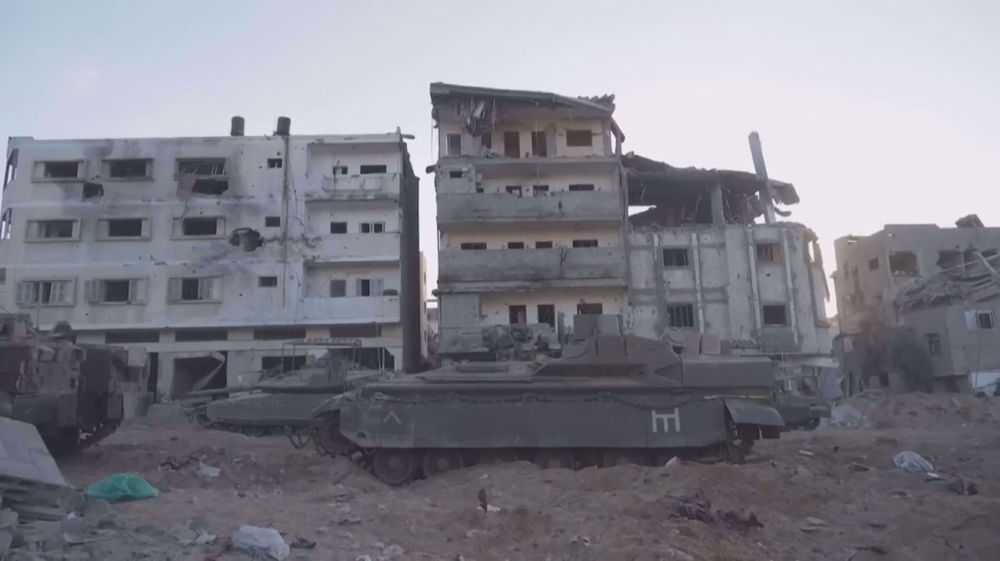
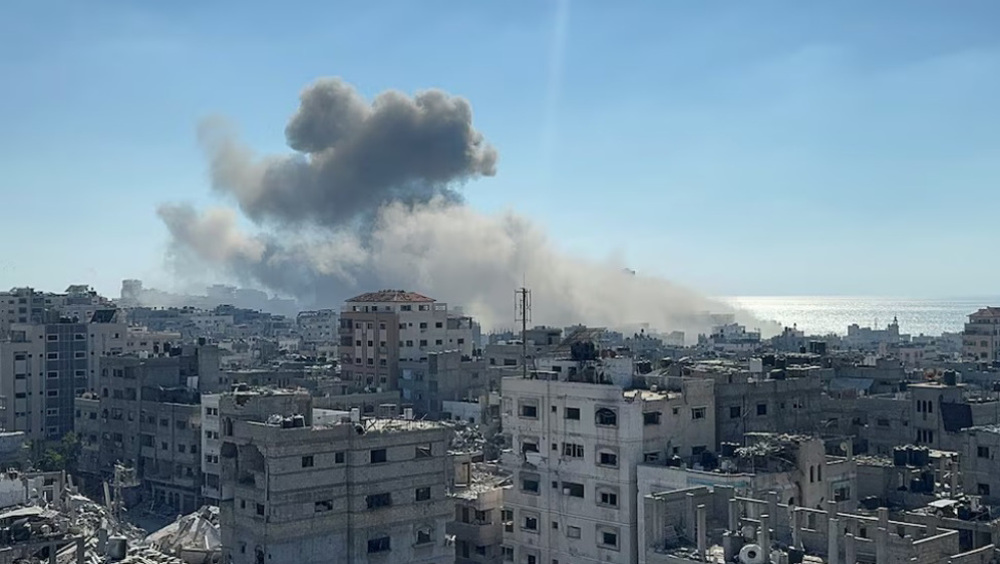

 This makes it easy to access the Press TV website
This makes it easy to access the Press TV website